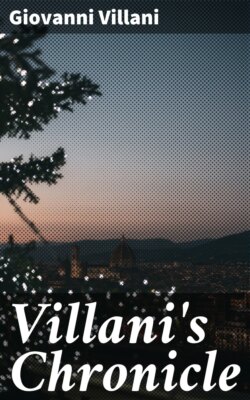Читать книгу Villani's Chronicle - Giovanni Villani - Страница 12
На сайте Литреса книга снята с продажи.
§ 6. Dante’s Politics.
ОглавлениеTable of Contents
Enough has been said to show the reader how very imperfect an idea is given of Dante's politics when it is said that he was at first a Guelf but became a Ghibelline.
We have seen that the political party, for his connection with which he was exiled, was heir to the best Guelf traditions. His own writings show that the maintenance of peace was his idea of the supreme function of Government. The extreme severity of his judgments upon thieving and upon false coining is characteristic of the citizen of the greatest commercial city of the world. In all this, if we must use the misleading words, he is more Guelf than Ghibelline. It is true that he constantly opposed the influence of Boniface VIII. in the affairs of Florence, but Boniface was a disturbing and reactionary force that opposed the legitimate development of the Guelf policy of the Florentine democracy. It is true that he is a passionate advocate of an ideal Empire, and that he looks to the Emperor to heal the wounds of Italy, but the more carefully his writings are studied the more clear does it become that what he seeks in the Emperor is not a champion of Teutonic feudalism and supporter of the territorial nobility, but a power that will make Roman Law run all through Italy, and will hold the turbulent nobles in check. The Empire and the Emperor mean to Dante justice and peace secured by the enforcement of Roman Law. Whatever this is, it is not the Ghibellinism of Farinata or the Ubaldini. It is true, however—and here if anywhere Dante is open to the charge of temporary desertion of his principles—that after his exile he, together with other Whites, entered into a league with the Ubaldini, the most obstinate of the traditional foes of the commercial community of Florence. This was a desperate act, which, however reprehensible or deplorable, cannot be taken as indicating the deliberate adoption of a policy in contradiction to the whole tenor of his life and thought. We may well suppose that the sense of the hollow and indeed dishonourable nature of such an alliance was one of the considerations that induced him to sever himself from the exiles and "make a party for himself."
Lastly, he was an enthusiastic admirer of Henry VII., and he even goaded him on to the attack of Florence. But Henry himself, who came to Italy with the sanction of the Pope, came with the earnest desire to heal and soothe. The Ghibellines proper felt that they had more to fear than to hope from him.
We cannot say, then, that Dante's politics changed. Nor can we define his position by calling him a Guelf or a Ghibelline, or both. His political ideals were his own. They were the outcome of his life and thought, intensely personal, as was all else about him. They cannot be labelled, but must be studied in his life and in his works.
If we are to use the current terms at all, we shall perhaps come nearest to the truth by saying that Dante was a Guelf in his aims, but that he approximated to the traditions if not to the practices of the Ghibellines in the means by which he hoped to see them realized.
